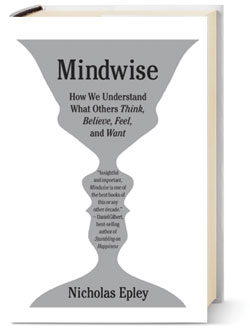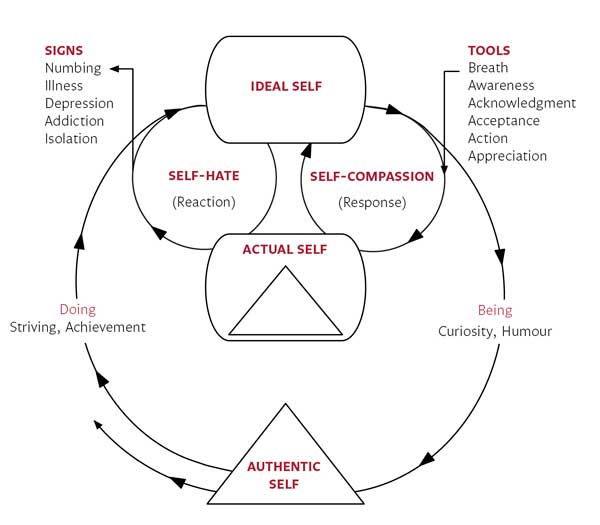Mindwise and the Haven Communication Model
By Rachel Davey. This book review first appeared in the May/June edition of Scientific American Mind. Reading it, I am immediately reminded of the Haven Communication Model and one of its most important components, ‘check it out’. The reviewer seems somewhat disappointed at the end of the article that the best way of understanding another person is “just ask what someone is thinking”. Ben and Jock in their book Health and Happiness, saw this as an opportunity rather than a obstacle, saying “when we connect with another person, we connect with all of life”.
Downloadable copies of the Haven Communication model (and other Haven models) can be found on the resources page of the Haven web site.
Mindwise: How We Understand What Others Think, Believe, Feel, and Want
Nicholas Epley
Knopf, 2014
“Speech was given to man so that he might hide his thoughts,” wrote French novelist Stendhal. Research on how accurate we are in assessing how other people perceive us confirms his cynical assertion; the impression people give us generally corresponds poorly to their real views.In Mindwise, Epley, a social psychologist at the University of Chicago Booth School of Business, expertly reviews a wide range of work of this kind to help us understand our “real sixth sense”: our ability to make accurate inferences about what other people are thinking. Even by age two, humans are far better at making such inferences than the most intelligent animals are—but we never get very good at it.This is important because accurate mind reading is fundamental to successful social interactions. If you believe everyone at the office party is thinking how silly you look in your new Rudolph-the-reindeer tie—even though no one is in fact paying the least attention—you might hide in a corner. If former French president Nicolas Sarkozy thinks Israeli prime minister Benjamin Netanyahu is not making good eye contact, he might infer—as indeed he did in 2011—that Netanyahu is “a liar.” In other words, the future of your job and relationships and even the future of humankind may depend on the accuracy of that sixth sense.
Unfortunately, the research on this topic is discouraging. Epley even admits that the main goal of the book is “to reduce the illusion of insight you have into the minds of others”—in other words, to burst your bubble of self-deception. There may be advantages to acknowledging one’s mind-reading deficits: you will be less likely to rush to judgment, he says, and more likely to give others the benefit of the doubt.
Toward the end, when it looks like Epley is finally going to show us how to overcome our deficits, we are let down. If you really want to know someone’s mind, he says, forget the two most commonly recommended methods: evaluating gestures and facial expressions and trying to imagine the other person’s perspective. Current research shows that lies are difficult to detect, even for highly trained tsa personnel, and that perspective taking actually makes one less accurate in knowing a person’s mind. Instead, he says, just ask what someone is thinking. In other words, forget mind reading; we need “to rely on our ears more than on our inferences.” That’s all he wrote.
In short, Mindwise is a comprehensive and well-written overview mainly of things most people would rather not know, much like a textbook on heart disease, but without the cures.
-Robert Epstein
This article was originally published with the title “Our Flawed Sixth Sense”







